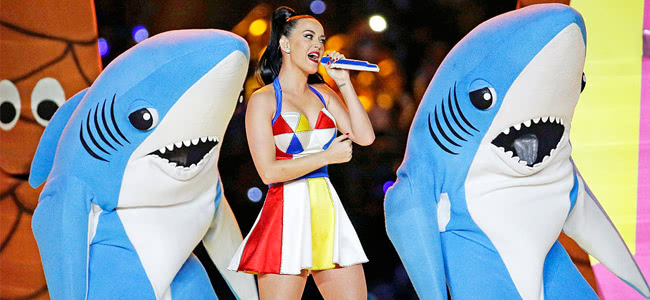With the advent of social media, the concept of the pop star changed drastically. No longer were the figures we saw in flashy music videos and on grand arena stages these unknowable, untouchable demigods. They were now real people with quirks and foibles and there were even open lines of communication.
Labels eventually figured out that modern consumers actually prefer pop stars that were human beings and not androids and seized the marketing opportunity that had placed itself at their doorstep. Superstars like Taylor Swift, Katy Perry, and Beyonce have whole teams that keep them flawless and human at the same time.
As Stereogum notes, the engine behind Swift’s extremely successful marketing campaign for her latest album, 1989, was Swift’s intimate connection with her fans. She showed up at their houses, baked them cookies, followed them on social media, and invited them to exclusive listening sessions.
It made fans feel as though they were more than just fans, they were a part of Swift’s life. However, recent legal action on the part of Swift, Perry, and Beyonce has fractured this friendly image. Fans selling items inspired by the stars on peer-to-peer e-commerce site Etsy have been hit with alleged trademark violations.
[include_post id=”332808″]
“We originally made the item for fun, we love Taylor and we had friends that love Taylor. We never intended for it to be a profit making item. The cost of the item covered shipping costs, and production costs with very little left over,” said one anonymous Etsy seller during an interview with BuzzFeed.
“When we got the e-mail that the trademark infringement occurred, we were pretty shocked because while our item was popular we didn’t feel as if it had become popular enough to cause harm to Taylor Swift’s empire. We were shocked. And we were scared. We didn’t even make enough money for a lawyer and this had seemed like such a harmless and fun idea.”
Beyonce’s lawyers, meanwhile, sent a cease-and-desist letter to Etsy instructing them to stop selling items marked with the word ‘Feyonce’, a pun on fiancee, while Perry has taken aim at a Florida-based 3D printing and figurine design company who were selling schematics to make a 3D-printed Left Shark figurine.
“Fans like to see themselves as part of the artist’s story, however small,” an Etsy seller told BuzzFeed. “They want to contribute and be creative and have fun. These free, loving, creative minds are being stopped by the very artists who have inspired them. Obviously an artist has a right to their art and people should respect that.”
“But at the same time most people, like us, are trying to be respectful and contribute to the excitement that the artist brings into our lives. When that is taken away, it leaves us with a bitter taste in our mouths. It feels as though we don’t matter, that our ideas and thoughts and creations never belonged to us in the first place.”
[include_post id=”366414″]
However, as The Guardian reports, Fernando Sosa, operator of the website PoliticalSculptor and Shapeways, who created the Left Shark figurines, isn’t buying it. Instead of ceasing sale of the figurines, turning over any that were already created, and “[providing] a complete accounting for all of the revenue you have received”, he’s lawyered up.
“Usually, when it comes to small business owners, when the lawyers come after you the outcome is pretty predictable,” Sosa said in a recent blog post addressing the situation with Perry’s lawyers. “Lawyer sends you a threatening letter and in fear of legal action you do whatever the lawyer tells you to do.”
In a letter shared via Digital Music News, Sosa’s lawyer, Christopher Jon Springman, a professor at New York University School of Law, argues that not only can costumes not be copyrighted, but it’s unclear if Perry owns the copyright at all, as she herself has stated that she was not the one in charge of designing the Super Bowl performance that spawned Left Shark.
“Just drop this thing,” Springman writes. “My client wants to get back to his business and he (and I’d wager pretty much everyone else) would be grateful if you’d just back off. Going ahead with these dubious copyright claims will not benefit Katy Perry.”
While artists obviously have an interest in protecting their brand (now more than ever, perhaps), but this is very different to Drake demanding royalties from Walmart for selling ‘YOLO’ T-shirts. These are pop superstars threatening fans making merch for fun, often for no profit at all, with legal action, which feels an awful lot like punching down.




































